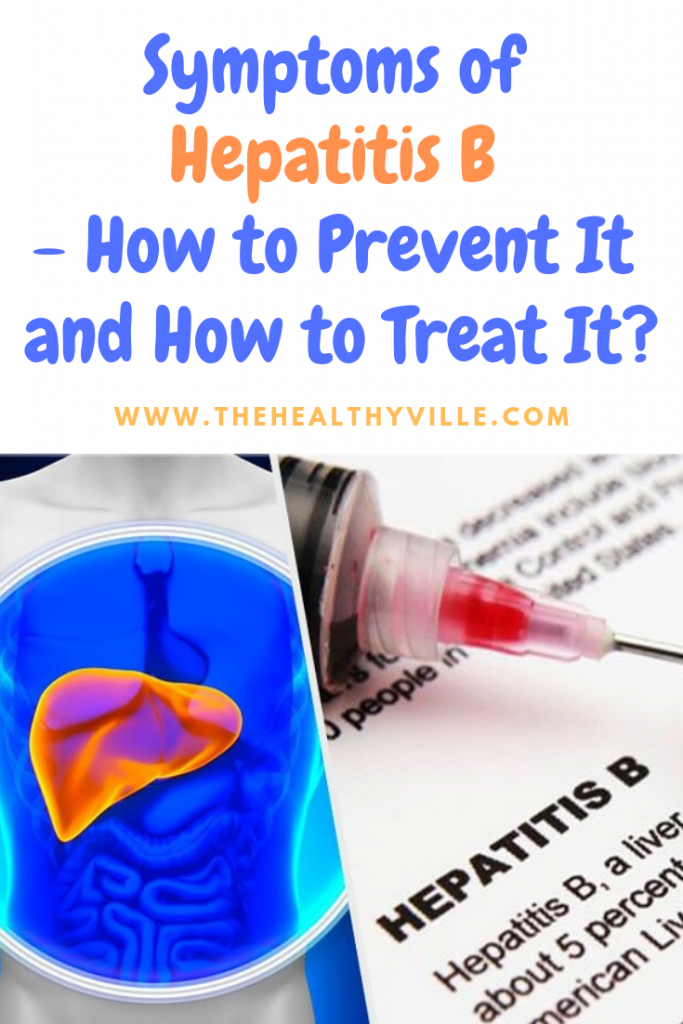Know the symptoms of hepatitis B and learn how to prevent or treat it if you’re already infected by it, but don’t worry, there is a cure.
Hepatitis B can now be prevented safely by vaccination, and new treatments are available for those who are already infected.
Hepatitis B is the most common hepatic infection and is caused by the hepatitis B virus (HBV), which damages and inflames the liver tissues, causing damage that interferes with the proper functioning of the organ. It presents itself through an acute or chronic process, and increases the risk of suffering from serious disorders such as liver failure, liver cancer and cirrhosis.
Causes of hepatitis B
The hepatitis B virus (HBV) causes the infection. It is transmitted from person to person through blood, semen and other bodily fluids, usually during sexual intercourse. Therefore, it does not spread when sneezing or coughing.
In the endemic areas of the disease, a large number of cases appear due to perinatal transmission, from mother to child during delivery. However, the neonate can be vaccinated to avoid infection in almost all cases.
Risk factors
- Receive blood transfusions.
- Work in areas of medical care.
- Receive kidney dialysis for a long time.
- Share needles during drug use.
- Suffers a puncture with a needle or sharps.
- Travel to areas where there is a high incidence of the disease.
- Have unprotected sex with an infected person.
- Having contact with contaminated needles during a tattoo or acupuncture sessions.
- Share personal items, such as razor and nail clippers, with an infected person.
Symptoms of hepatitis B
Most infected patients do not experience symptoms during the acute phase of the infection. However, in some patients discomfort can appear from one to four months after they have become infected.
The main symptoms of hepatitis B include yellowing of the skin and eyes (jaundice), fever, feeling of extreme fatigue, pain in the joints and muscles (especially in the abdominal area) and lack of appetite. Additionally, nausea, vomiting and diarrhea occur. In these patients, it is characteristic that the urine they excrete is dark in color.
Complications
A small number of patients with acute hepatitis B may develop acute liver failure, which increases the risk of death. The infection can also become a chronic disorder and, subsequently, can lead to serious diseases such as liver cirrhosis and liver cancer.
Diagnosis
The diagnosis of this infectious disease focuses on the detection of the surface antigen of the hepatitis B virus (HBsAg). Your doctor may suggest tests to look for liver damage if you have a chronic hepatitis. These include:
- Albumin level.
- Liver function tests.
- Prothrombin time.
- Liver biopsy.
A blood test, in this case, is necessary to detect the presence of the virus. With the aid of these tests, patients can also be followed up and determine whether the infection is acute or chronic.
Treatment
This disease does not require medical treatment until it becomes chronic. Usually doctors prescribe antiviral drugs, whose function is to reduce or eliminate the action of hepatitis B virus in the liver. One of these is the injection interferon. Its use reduces the risk of cirrhosis and liver cancer.
Other drugs used orally are: Adefovir, Entecavir, Lamivudine, Telbivudine, Tenofovir. The odds of getting this type of treatment increase if:
- The functioning of the liver gets worse quickly.
- Clinical signs of liver damage are present.
- HBV levels are high.
Further info: Learn How To Regenerate Liver Cells Naturally With The Aid Of A Few Home Ingredients!
Prevention of the symptoms of hepatitis B
The hepatitis B vaccine is the most important pillar in the prevention of this infection. The World Health Organization (WHO) recommends the administration of the vaccine to all infants as soon as possible after birth.
Babies get their first dose of the vaccine at birth (there are 3 doses in total and apply from 6 to 18 months of age). Health workers and people who live with an infected patient should also get the vaccine. On the other hand, babies of mothers infected with acute hepatitis B, or who have had the infection in the past, should receive a special vaccine within 12 hours after birth.
Other preventive measures include:
- Using a condom during sex.
- Wearing gloves when handling someone else’s blood.
- Not sharing personal items (nail clippers, razors, toothbrushes, etc.).
Don’t forget to SHARE the symptoms of hepatitis B and the preventative measures with your friends and family on your social networks.

